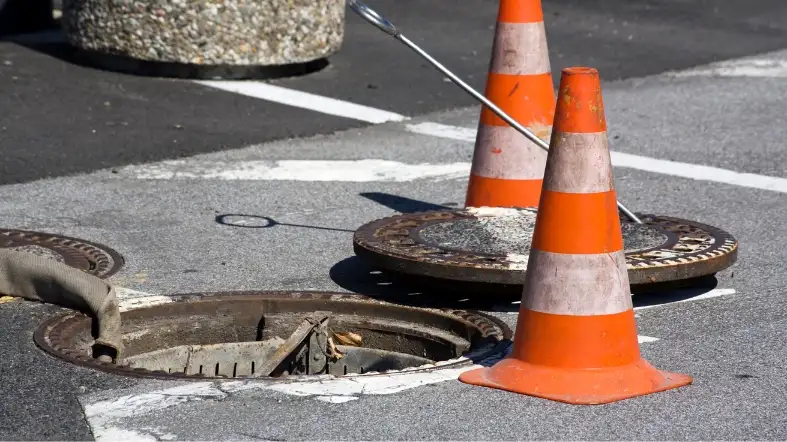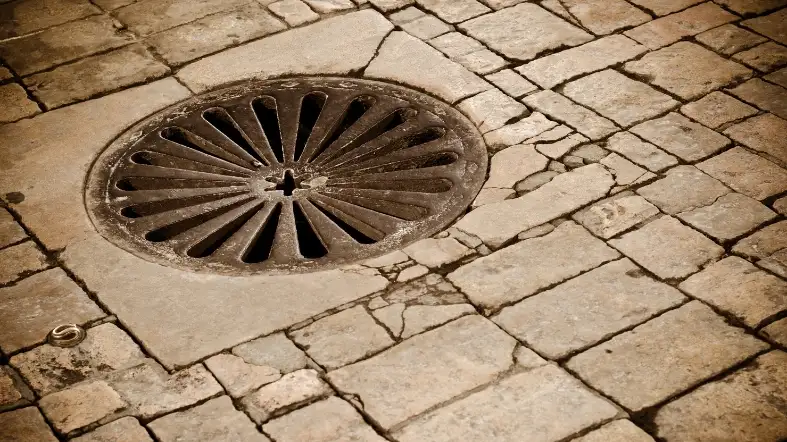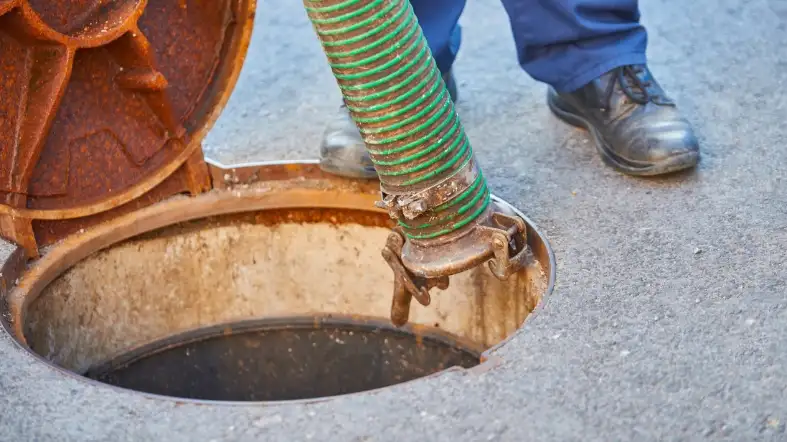Whether you’re a homeowner, a renter, or a business owner, understanding the cost of these essential services is crucial for budgeting and financial planning.
From understanding the various fees and charges that make up your bill, to learning about conservation and efficiency measures, we’ll be covering it all.
We’ll also be discussing the various factors that contribute to the cost of these services, as well as tips and strategies for managing and reducing your expenses.
Let’s dive into the world of water, sewer, and trash costs.
How much is water sewer trash?
In general, the average cost for water, sewer, and trash in the United States can range from $50 to $150 per month.

However, prices can vary greatly depending on factors such as the size of your home, the number of people living in the home, and the type of services provided.
It is best to contact your local utility company to get an accurate estimate of the cost for your specific location.
Here is an example of a table that displays the average cost of water, sewer, and trash for a one-bedroom apartment in various cities in the US:
| City | Average Water Cost | Average Sewer Cost | Average Trash Cost | Total Cost |
|---|---|---|---|---|
| New York, NY | $40 | $30 | $20 | $90 |
| Los Angeles, CA | $35 | $25 | $15 | $75 |
| Chicago, IL | $45 | $35 | $25 | $105 |
| Miami, FL | $30 | $20 | $10 | $60 |
| Dallas, TX | $50 | $40 | $30 | $120 |
Please note that the above table is an example and the actual cost may vary based on individual apartments, buildings, and cities.
How Water Charges are Calculated?
Water charges are typically calculated based on the amount of water used by a customer.
The process of calculating water charges typically involves measuring the amount of water used, determining the rate at which water is charged, and then applying that rate to the amount of water used to determine the total charges.
The first step in calculating water charges is to measure the amount of water used.
This is typically done by installing a water meter at the customer’s property.
The water meter measures the amount of water that flows through the meter, and the meter readings are recorded by the water company.
The next step is to determine the rate at which water is charged.
This rate is typically based on the cost of providing water services, including the cost of treating and delivering water, as well as any other costs associated with the water system.
The rate is usually set by the water company and may vary depending on the type of service (e.g. residential, commercial, industrial) and the location of the customer.
Once the rate has been determined, it is applied to the amount of water used to determine the total charges.
For example, if the rate is $5 per 1000 gallons of water used and the customer used 2000 gallons of water, the total charges would be $10.
In addition to the basic water charges, customers may also be charged additional fees, such as a fixed service charge, a sewage charge, or a charge for water conservation programs.
These additional charges are typically added to the basic water charges to determine the final bill.
It’s important to note that some water companies may also offer different pricing structures, such as tiered pricing or seasonal pricing, which can affect how water charges are calculated.
Tiered pricing involves charging different rates for different levels of water usage, while seasonal pricing involves adjusting rates based on the time of year.
How Sewer Charges Are Calculated?

Sewer charges are calculated based on the amount of water used by a property.
The more water that is used, the higher the sewer charge will be.
The first step in calculating sewer charges is to determine the property’s water usage.
This is typically done by measuring the amount of water that goes into the property through the main water meter.
This water usage is then multiplied by a set rate, which is determined by the local government or utility company.
In some cases, the sewer charge may also be based on the size of the property.
For example, properties with larger lots may be charged more than properties with smaller lots.
This is because larger properties typically use more water and therefore generate more sewage.
In addition to the water usage and property size, there are other factors that can affect the sewer charge. Some of these include:
- The type of property: Commercial properties may be charged a different rate than residential properties, as they typically use more water.
- The area of the property: Properties located in more densely populated areas may be charged more, as they put more strain on the sewage system.
- The type of wastewater: Properties that generate hazardous or toxic wastewater may be charged a higher rate, as it requires special treatment.
Overall, sewer charges are calculated based on a combination of factors, including water usage, property size, and the type of property and wastewater.
The exact calculation method may vary depending on the local government or utility company, but the goal is to fairly charge properties based on their impact on the sewage system.
How To Reduce Your Water, Sewer, And Trash Bills?

By following these tips, you can reduce your water, sewer, and trash bills and save money on your utility costs.
Remember to continue monitoring your usage and making changes as needed to keep your bills low.
1. Monitor Your Water Usage:
One of the most effective ways to reduce your water, sewer, and trash bills is to monitor your water usage.
This can be done by installing a water meter or by keeping track of your bills over time.
By understanding how much water you are using on a regular basis, you can take steps to reduce your usage and lower your bills.
2. Fix Leaks:
Leaks in your home can add up quickly and can be a major contributor to high water, sewer, and trash bills.
Regularly checking for leaks and fixing them as soon as they are discovered can save you money on your bills.
3. Invest in Water-Efficient Appliances:
Upgrading to water-efficient appliances can significantly reduce your water usage.
Look for appliances with the WaterSense label, which indicates that they meet certain water-saving standards.
4. Use Low-Flow Fixtures:
Replacing your old showerheads, faucets, and toilets with low-flow fixtures can help you save water and money.
These fixtures use less water per minute, which can make a big difference on your water and sewer bills.
5. Reduce Your Garbage:
You can also reduce your trash bills by reducing the amount of garbage you generate.
This can be done by recycling more, composting, or using reusable containers instead of disposable ones.
6. Use Rainwater:
You can also save money on your water bills by harvesting rainwater and using it for irrigation, flushing toilets, and other non-potable uses.
This can also reduce the amount of water you need to purchase from your local water utility.
7. Conserve Energy:
Saving energy can also help you save money on your water and sewer bills.
This can be done by using energy-efficient appliances, turning off lights and electronics when not in use, and using natural lighting.
8. Review Your Bills:
Review your water, sewer, and trash bills regularly to make sure they are accurate.
If you notice any discrepancies, contact your service provider to resolve them.
FAQs
How Much Does Water, Sewer, And Trash Cost?
The cost of water, sewer, and trash varies depending on where you live and your usage.
It can range from a few hundred dollars a year to several thousand dollars.
How Can I Find Out How Much My Water, Sewer, And Trash Bill Will Be?
You can contact your local utility company or municipality to find out the cost for your specific area.
They may also have information on their website or provide an estimate based on your usage.
Are There Any Ways To Lower My Water, Sewer, And Trash Bill?
Yes, there are ways to lower your bill.
These include reducing your water usage, installing low-flow toilets and showerheads, and recycling more.
Some municipalities also offer rebates or discounts for energy-efficient appliances.
How Often Do I Receive A Bill For Water, Sewer, And Trash?
The frequency of billing can vary depending on where you live.
Some areas may bill monthly, while others may bill quarterly or annually.
Can I Pay My Water, Sewer, And Trash Bill Online?
Many utility companies and municipalities offer online billing and payment options.
You can check with your local provider to see if this is available in your area.
What Happens If I Don’t Pay My Water, Sewer, And Trash Bill?
If you don’t pay your bill, your service may be shut off and you may incur additional fees or penalties.
It’s important to keep up with your payments to avoid any disruptions in service.
Conclusion
The cost of water, sewer, and trash services can vary greatly depending on location, usage, and provider.
It is important to research and compare prices from different providers in your area to ensure you are getting the best deal.
Additionally, implementing conservation efforts such as reducing water usage and recycling can help lower your overall costs.
Remember to budget for these expenses when planning your finances and be aware of any changes or increases in rates.
